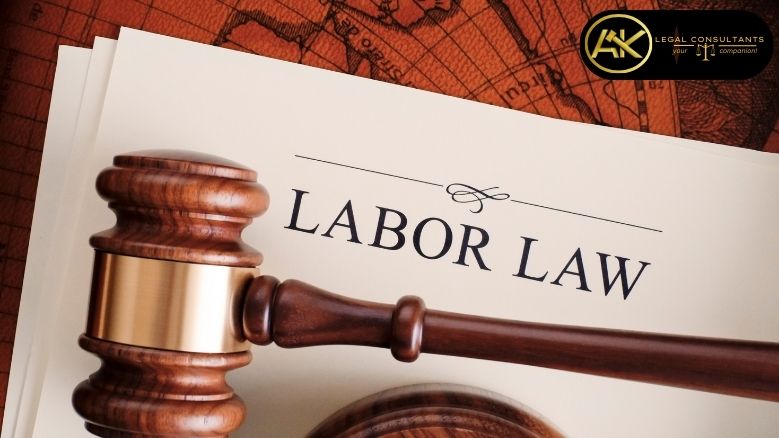[fusion_builder_container hundred_percent=”no” equal_height_columns=”no” hide_on_mobile=”small-visibility,medium-visibility,large-visibility” background_position=”center center” background_repeat=”no-repeat” fade=”no” background_parallax=”none” parallax_speed=”0.3″ video_aspect_ratio=”16:9″ video_loop=”yes” video_mute=”yes” border_style=”solid” flex_column_spacing=”0px” type=”flex”][fusion_builder_row][fusion_builder_column type=”1_1″ type=”1_1″ layout=”1_1″ background_position=”left top” background_color=”” border_color=”” border_style=”solid” border_position=”all” spacing=”yes” background_image=”” background_repeat=”no-repeat” padding_top=”” padding_right=”” padding_bottom=”” padding_left=”” margin_top=”0px” margin_bottom=”0px” class=”” id=”” animation_type=”” animation_speed=”0.3″ animation_direction=”left” hide_on_mobile=”small-visibility,medium-visibility,large-visibility” center_content=”no” last=”true” min_height=”” hover_type=”none” link=”” first=”true”][fusion_text fusion_font_variant_text_font=”” font_size=”19″]
Ensuring labour law compliance in India is vital for every employer. Acting as an advisor, labour law compliance protects not only the rights of employees but also shields businesses from legal disputes and penalties. This guide provides a detailed overview of important aspects of employee legal rights that every employer in India needs to understand.
Understanding Indian Labour Laws
Labour laws in India protect worker rights and regulate the relationship between employers and employees. Employers must adhere to laws governing wages, working hours, social security, and dispute resolution to ensure a fair and safe working environment. Failing to comply can lead to legal actions and hefty penalties.
Case Study: In 2022, a manufacturing company in Pune faced legal trouble for non-compliance with the Minimum Wages Act. An audit revealed that the company was paying temporary workers below the minimum wage set by the Maharashtra government. The company had to compensate the affected workers and pay a substantial fine. This case highlights the importance of understanding wage laws to avoid legal complications. Following this incident, the company revamped its HR processes, implemented compliance checks, and trained the HR team on key regulations such as the Payment of Wages Act and Employees’ Provident Fund Act, ensuring that the workforce received the benefits they were entitled to.
Compliance with Wages and Working Hours
Employers are required to follow specific regulations outlined in the Factories Act, 1948 and the Shops and Establishments Act. These laws govern how long employees can work, how much they should be paid for overtime, and ensuring they receive accurate wages. Failure to comply not only affects employee morale but also leads to legal repercussions, such as penalties and fines. Employers must ensure a fair workplace to avoid legal trouble.
Case Study: In early 2023, a large IT firm in Hyderabad faced worker unrest after it was found that employees were being assigned excessive overtime without proper compensation. An investigation revealed that the company had breached the overtime wage regulations under the Factories Act. The company was fined and asked to compensate employees for the unpaid overtime. Following the incident, the company revamped its time-tracking system and HR policies to align with the Factories Act and the Shops and Establishments Act, ensuring fair compensation for additional hours worked. This not only helped the company comply with the law but also improved worker satisfaction and reduced the turnover rate.
Social Security Compliance
Social security compliance is a crucial aspect of Indian labour laws. Employers are required to contribute to schemes such as the Employees’ Provident Fund (EPF) and Employees’ State Insurance (ESI). Non-compliance can result in severe penalties and damage a company’s reputation. Employers must ensure that employees receive their rightful benefits to protect both the business and its workforce.
Case Study: A mid-sized construction firm in Bengaluru failed to contribute to the Employees’ Provident Fund (EPF) for its workers over three years. When an employee retired and requested his provident fund, the firm realized its non-compliance. After an investigation, the firm was fined and ordered to make retrospective contributions for all employees, along with penalties. The company worked with legal advisors to create an EPF compliance plan and enrolled all workers in the Employees’ State Insurance (ESI) scheme to cover healthcare benefits. By taking corrective action, the company rebuilt trust with its employees and avoided further legal issues.
Industrial Relations and Dispute Resolution
The Industrial Disputes Act, 1947 plays a critical role in maintaining harmonious relations between employers and employees. Following the correct legal procedures for dispute resolution helps companies avoid strikes, layoffs, or lockouts, ensuring business continuity. By resolving conflicts appropriately, businesses can foster a positive work environment that benefits both employers and employees.
Case Study: In 2021, a textile manufacturing company in Tamil Nadu faced a labour strike after the management laid off workers without following legal procedures. The workers’ union filed a complaint under the Industrial Disputes Act, claiming that the layoffs were illegal. After the matter was brought to the labour court, the company was ordered to either reinstate the workers or provide severance pay as required by law. Following this, the company appointed an industrial relations specialist to improve communication with workers and implemented a dispute resolution mechanism that complied with the law. This helped the company regain employee trust and prevent future disruptions.
Compliance with Health and Safety Regulations
The Factories Act, 1948, and related laws require employers to maintain a safe working environment. Failure to do so can result in accidents, injuries, and legal consequences. Ensuring workplace safety protects employees and helps businesses avoid costly lawsuits.
Case Study: In 2020, a food processing plant in Gujarat experienced a major accident due to faulty machinery. Upon investigation, it was discovered that the company had neglected regular safety inspections, violating the Factories Act. The company was fined and ordered to overhaul its safety protocols. It responded by implementing a comprehensive safety training program, scheduling regular machinery inspections, and forming a safety committee to ensure compliance with health and safety regulations. By taking proactive measures, the company not only complied with the law but also improved worker safety and morale.
The Role of Human Resources in Legal Compliance
Human Resources (HR) plays a vital role in ensuring that companies comply with labour laws. HR is responsible for maintaining proper records, conducting employee training, and enforcing policies to ensure the company operates within legal boundaries. A strong HR department helps companies avoid legal risks and maintain a healthy work environment.
Case Study: An HR department in a national retail chain faced a lawsuit in 2022 after an employee was wrongfully denied their gratuity. The investigation revealed that the company had miscalculated the employee’s years of service, violating the Payment of Gratuity Act, 1972. The HR department worked with legal advisors to resolve the issue by compensating the employee and implemented internal audits to ensure compliance with labour laws. Regular training sessions were introduced to keep HR staff updated on legal requirements, ensuring future compliance.
List of Labour Law Compliances in India and Their Provisions
- The Employees Compensation Act, 1923 – Ensures compensation for employees injured or killed at work.
- The Trade Unions Act, 1926 – Governs the registration and functioning of trade unions.
- The Payment of Wages Act, 1936 – Ensures timely payment of wages to industrial workers.
- The Industrial Disputes Act, 1947 – Facilitates the resolution of industrial disputes.
- The Employees Provident Funds and Miscellaneous Provisions Act (EPF), 1952 – Provides retirement benefits and other provisions for employees.
- The Minimum Wages Act, 1948 – Protects employees from exploitation by setting a minimum wage.
- The Factories Act, 1948 – Sets safety standards for workers in factories.
- The Employees State Insurance Corporation Act (ESIC), 1948 – Provides health insurance for workers.
- The Maternity Benefit Act, 1961 – Ensures benefits for women during maternity.
- The Payment of Bonus Act, 1965 – Guarantees bonuses to employees based on salary.
- The Equal Remuneration Act, 1976 – Ensures equal pay for men and women for the same work.
- The Sexual Harassment of Women at Workplace (Prevention, Prohibition & Redressal) Act, 2013 – Prevents and addresses sexual harassment in workplaces.
Conclusion: Ensuring Compliance for a Stronger Workforce
Labour law compliance is not just about avoiding penalties—it’s about fostering a better work environment that benefits both employers and employees. By understanding key regulations, implementing compliance procedures, and addressing disputes proactively, businesses can avoid legal issues and build trust within their workforce. For those who find labour law compliance overwhelming, partnering with legal advisors, like AK Legal Consultants, can ensure that your business remains compliant with all aspects of Indian labour law.
Related Posts from this site:
- Simplify your LLP registration in Ahmedabad
- How to Protect your intellectual Property
- 9 Legal steps before starting a business
- The Importance of Data Privacy Laws for Indian Businesses
- Legal procedure for Mergers and Acquisitions in India
[/fusion_text][/fusion_builder_column][/fusion_builder_row][/fusion_builder_container]










Leave A Comment